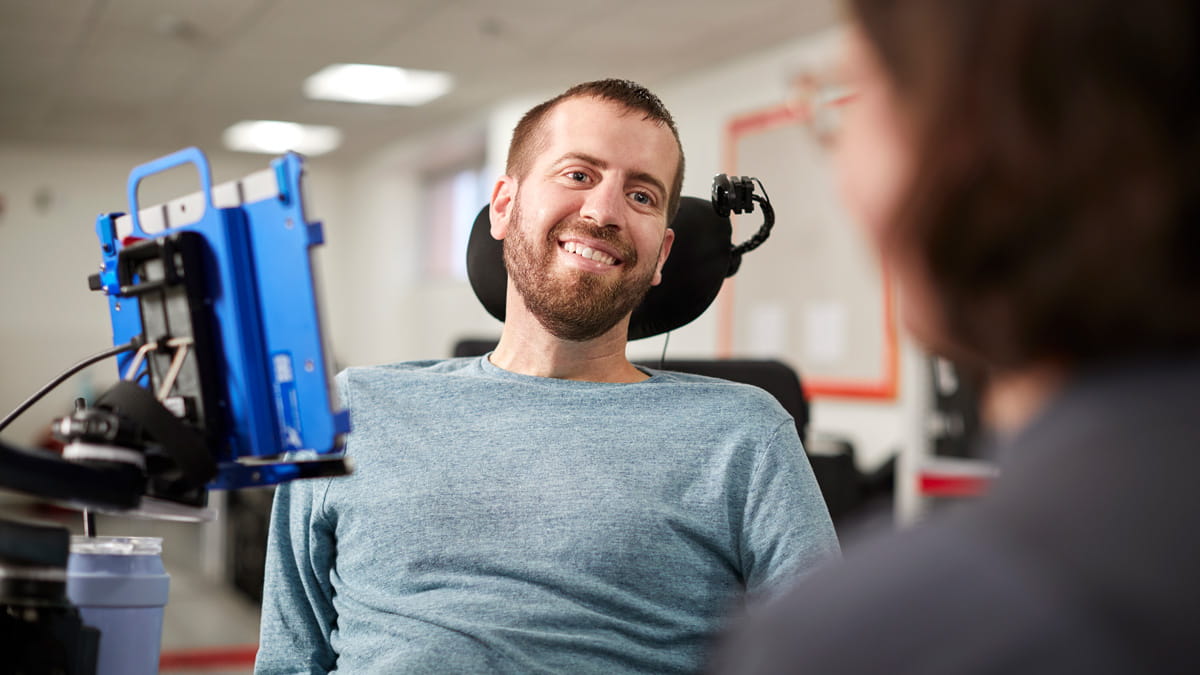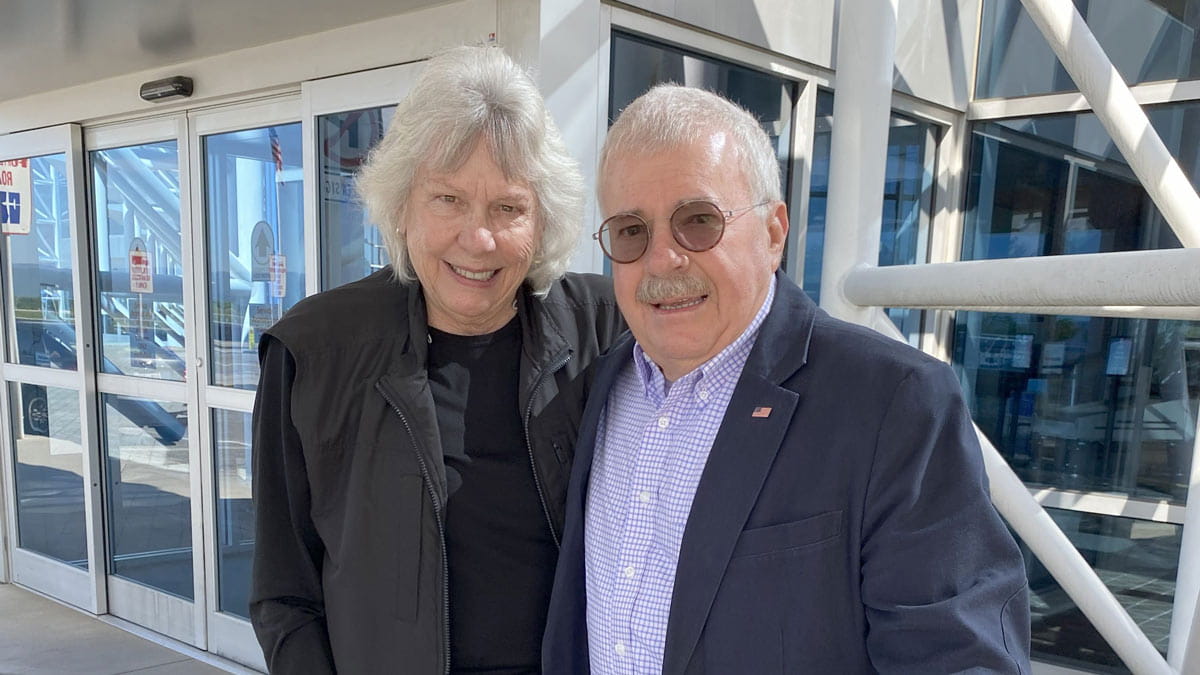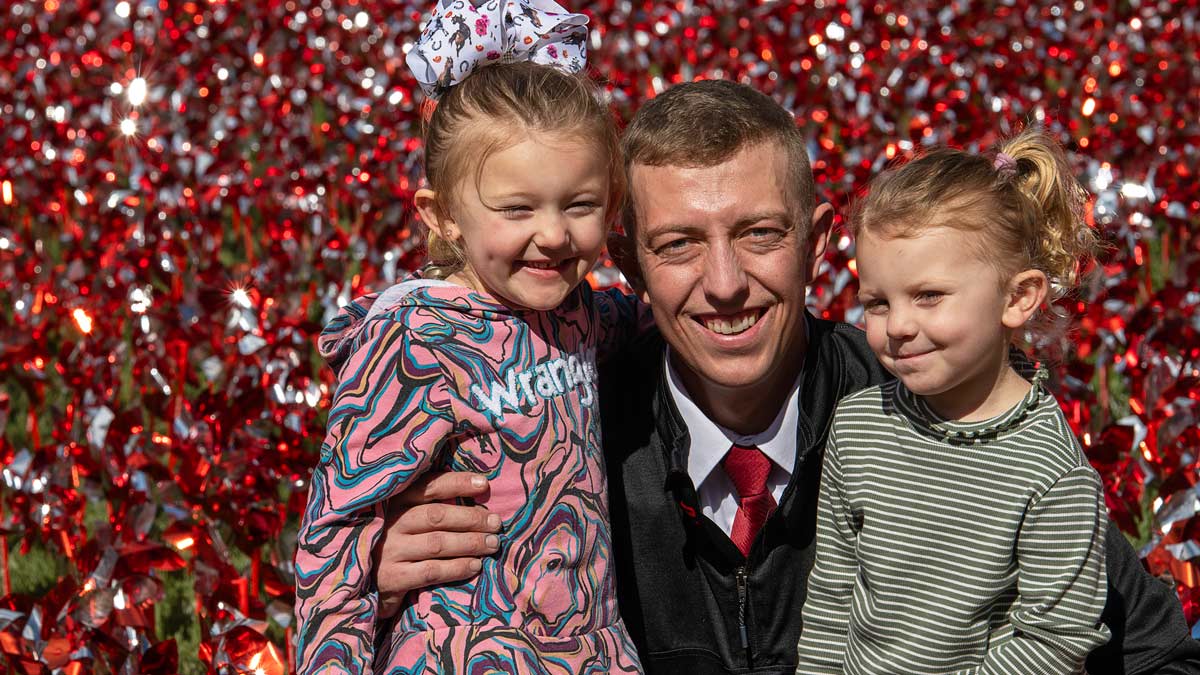Finding a team to care for him — and his family
Keegan Hale, living with ALS

Keegan Hale was 29 when he noticed he was having trouble with his right arm. Lifting weights and shooting a basketball were becoming more challenging, so he started seeing doctors in 2020 to try to figure out what was causing the weakness.
After six months of tests, he received devastating news: Keegan had amyotrophic lateral sclerosis (ALS), commonly known as Lou Gehrig’s disease. The rare, incurable neurological disease afflicts the nerve cells in the brain and spinal cord that control voluntary muscle movement. In time, it would rob him of his ability to move and speak. Keegan knew right away how terrible the diagnosis was, having seen it afflict three people in his life.
Four days after his diagnosis, he and his wife learned they were expecting their first child, a daughter.
“I was devastated to have to explain it to my wife,” Keegan says. “That entire week following my diagnosis, my wife and I cried more than we ever had. I remember feeling like we were being robbed of future plans and joys.”
In the years since, Keegan has been extremely grateful for the support he’s received from his family and friends who have helped him and his wife navigate the innumerable challenges ALS has presented.

What challenges have you faced that you were least expecting?
For one thing, communication has been slower than I anticipated. I use an eye-tracking device to communicate, and it has been great, but it is still slow and the pace of conversation is difficult. Second, I have been surprised at how stubborn I am about asking for help. I think ALS has challenged me to develop more humility.
What’s your hope for research into this disease?
We need a breakthrough treatment that extends life by years, not a few months. The average ALS patient lives about five years after diagnosis. The prognosis is so short and there are so few people with ALS. We need more time to develop a cure.
Why did you decide to seek ALS treatment at The Ohio State University Neurological Institute?
It is truly a multidisciplinary clinic with many additional features such as an in-house wheelchair clinic, a genetic counselor and an assistive technology wing. The team has cared for me and my entire family at every visit and is always available for questions between visits. I appreciate the fact that Ohio State does clinical trials on-site. They provide great care while enabling me to battle this disease directly.
What are the three most important things you’d share with someone recently diagnosed with ALS?
First of all, take advantage of whatever time you have. Take trips, spend time with loved ones, do activities you love, have conversations you really want to have, make peace with people. I am so grateful for people encouraging me to do these things.
Second, swallow your pride and get ahead of ALS. There are many things that the team at Ohio State can help get started — equipment you will need, adaptations to make at your home, future medical decisions to consider. It may not be easy to do these things immediately, but it’s crucial.
And finally, grieve with others. Don’t try to shield people from potential pain by not being forthright about ALS. There will be tears, but genuinely relating to others is one of the best things in life.




